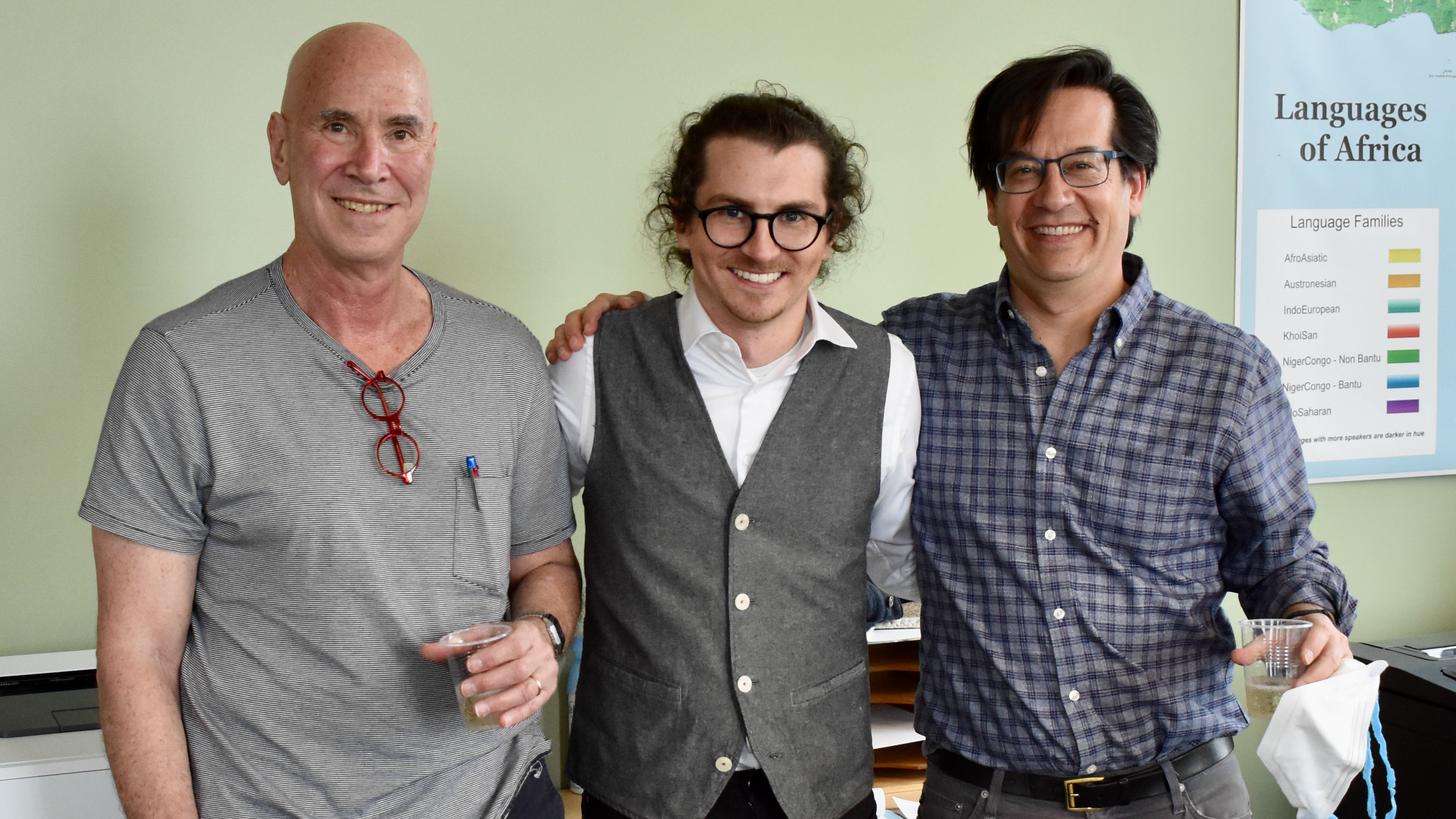Adam Liter in Language Acquisition
May 11, 2022

Why do children sometimes double WH?
Now in Language Acquisition, "Cognitive inhibition explains children’s production of medial wh-phrases," from Adam Liter *22, with advisor Jeff Lidz plus collaborator, erstwhile department visitor, and faculty at the University of São Paolo, Elaine Grolla. The paper argues on the basis of several experiments that children's production of strings like "Who do you think who is in the box?" are performance errors reflecting underdeveloped cognitive inhibition, rather than evidence of a competence grammar that permits sentences not observed in the ambient language, owing to endogenous aspects of the acquisition process. This work draws on Adam's dissertation, Explorations in Diagnosing Competence and Performance Factors in Linguistic Inquiry, which was co-supervised by Jeff Lidz and Norbert Hornstein, and supported by an NSF doctoral dissertation improvement grant.
Abstract
Non-adult-like linguistic behavior in children is sometimes taken as evidence for endogenous factors that drive selection of grammatical features from the child’s hypothesis space of possible grammars. Analyses of English-acquiring children’s productions of medial wh-phrases exemplify this trend in particular. We provide an alternative account of these productions as performance errors arising from underdeveloped cognitive inhibition. We offer experimental evidence in favor of our failure of inhibition account. The results argue against treating these errors as reflecting incomplete or non-target acquisition of grammatical features. Instead, the results support a theory of how these errors arise and are subsequently purged from children’s productions that reduces to a theory of how cognitive inhibition develops during childhood.

